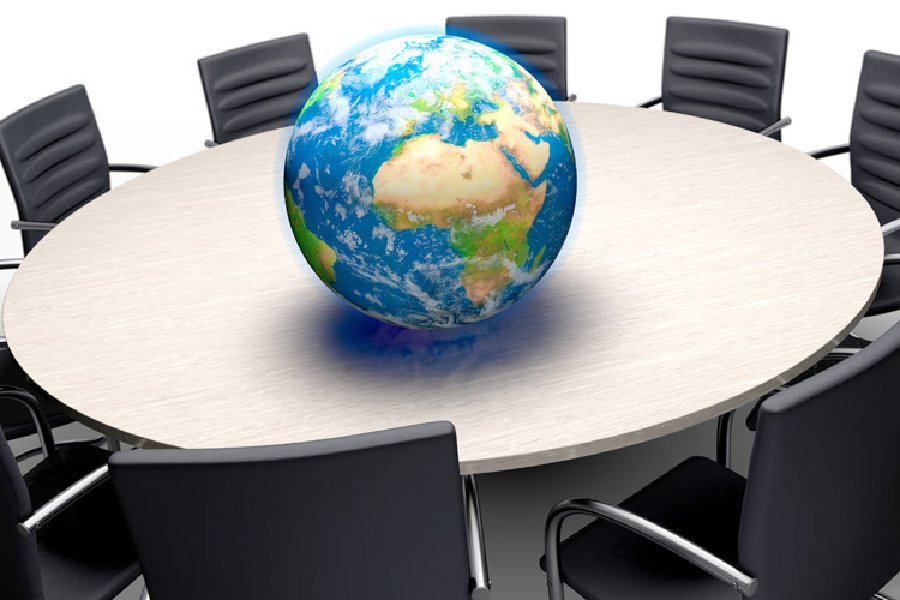It appears that the tipping point is here — both geologically and geopolitically. The Arctic, to cite one example, is warming at a rate four times faster than the global average, leading to a critical loss of sea ice and the thawing of permafrost. This could unleash vast quantities of stored carbon and trigger multiple catastrophic and irreversible climatic events. Yet, at such a crucial juncture, the Arctic Council, a group of eight countries that regulates and oversees activities in this vital ecosystem, stands suspended owing to the Russian invasion of Ukraine. Ironically, while regulation has come to a standstill, exploitative ‘developmental’ activities have gathered steam. Russia stretches over 53% of the Arctic Ocean coastline and is expanding trade channels and using the waters to transport high-polluting heavy fuel. But Moscow is not alone in this; six of the eight members of the Arctic Council are members of NATO, which is reasserting itself in the region while China is seeking to realise its dream of a Polar Silk Road in collaboration with Russia. Significantly, these are not the countries that will face the brunt of melting polar ice, at least not at first. The impacts of climate change disproportionately affect the Global South. Research shows links between the melting of Arctic ice and extreme rainfall events during the Indian monsoons. It is thus incumbent on India — it is one of the 13 observer states in the Arctic Council — to voice the concerns affecting vulnerable countries. India’s ability to bridge historical divisions and develop a consensus among the Global North and the Global South, as was evident at the recent G20 Summit, makes it possible for New Delhi to try and be a positive force of change in the Arctic.
In this context, it must be noted that India released its long-pending Arctic policy last year with a special segment on climate and environmental protection. The policy also seeks to deepen India’s engagement with Arctic nations. But geopolitics and geology, even as they intersect, need not always be complementary forces. For instance, India’s unwavering support for Russia — a pragmatic geostrategic choice — has been condemned by the members of the Arctic Council. This might also impede New Delhi’s leverage on the ecological issues affecting the region. The destruction of the Arctic will no longer affect just eight nations. A larger forum that includes all the major powers vying for Arctic resources — quicker trade routes and 13% of the world’s undiscovered oil reserves — needs to be formed to cool rising tempers and temperatures.











